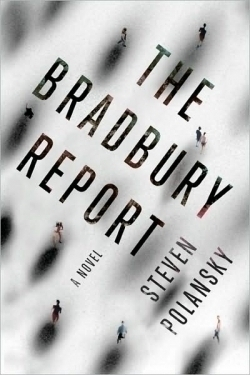The Bradbury Report
In 2071 AD, clones are grown for spare parts. They live like subhumans in harsh conditions in the Clearances, a vast area run by a nefarious and secretive government. Virtually no one thinks about his or her clone, or the ethical issues involved with their horrific treatment. But when a clone miraculously escapes and is recovered by a small resistance group, a plot hatches to have it meet its Original—an encounter so inconceivable to the citizenry that the group believes the resultant report by the Original will create an outcry and end the barbarous cloning program.
The narrator is a lonely elderly man who is contacted by Anna, a resistance member and an old flame from his college days. She has met his youthful clone, who is scarcely more than a savage. Anna must convince her former friend to put his life at risk for the clone’s welfare and to write the blockbuster book about his encounter with his young replica. He reluctantly agrees to meet the clone but has no intent to write the book, and he does not like being pushed around by the resistance or the shadowy government figures on their trail. Only after he has spent a year on the run with the clone and Anna does he begin to truly understand what he has been asked to do, and how his interactions with this strange modern Tarzan have changed him profoundly.
The author’s fiction has been published in the New Yorker, Harper’s, and other periodicals. His short story collection, Dating Miss Universe, won the Sandstone Prize and the Minnesota Book Award. He writes succinctly, and his use of dialogue among the handful of characters moves the story along crisply.
But for the existence of the clones, the story seems to have been set in today’s world, with the technology—automobiles, televisions, and microwave ovens—that we currently use. The author makes virtually no attempt to convince the reader that the characters truly inhabit a futuristic world, with the extreme changes in technology that sixty years will surely bring. Perhaps this omission is intended to bring the moral implications of cloning closer to home.
This book is a psychological novel, not an action tale or suspense thriller; for those interested in the development of an eerie and complex relationship between a dying old man and his much younger self, this story is first-rate.
Reviewed by
Alan J. Couture
Disclosure: This article is not an endorsement, but a review. The publisher of this book provided free copies of the book to have their book reviewed by a professional reviewer. No fee was paid by the publisher for this review. Foreword Reviews only recommends books that we love. Foreword Magazine, Inc. is disclosing this in accordance with the Federal Trade Commission’s 16 CFR, Part 255.

